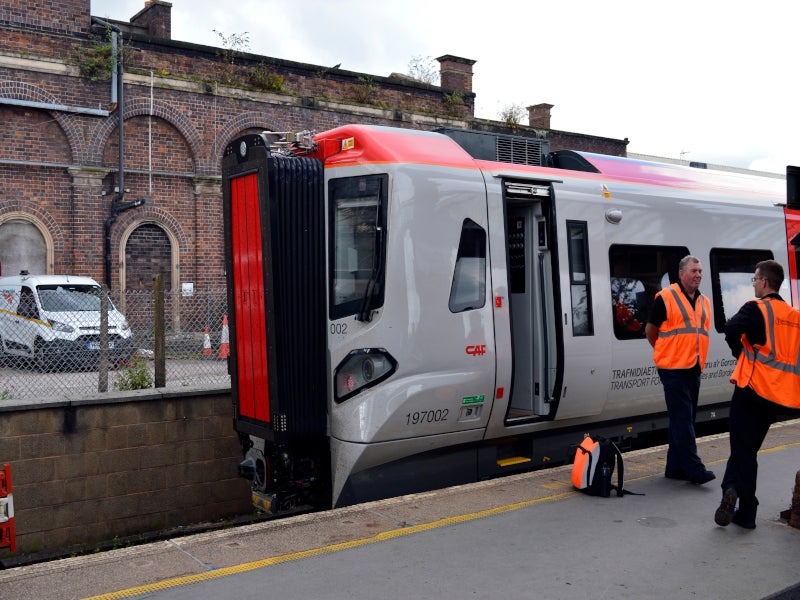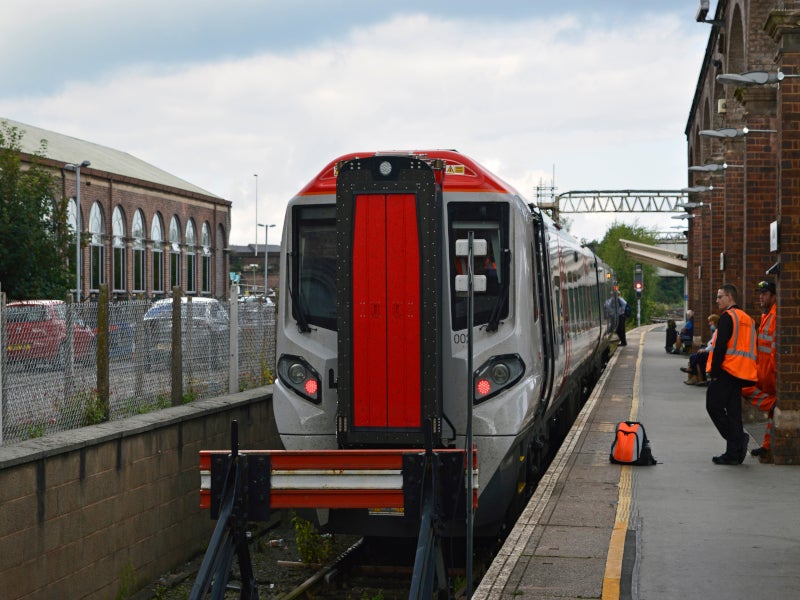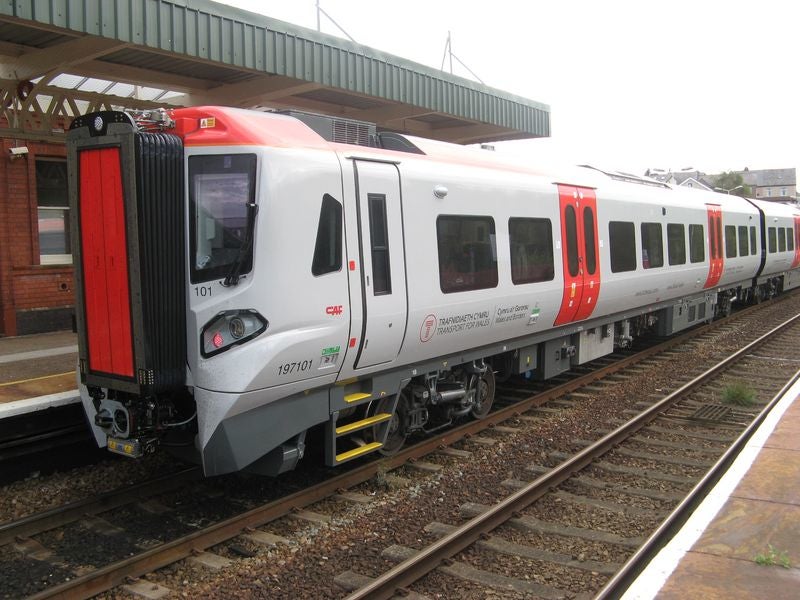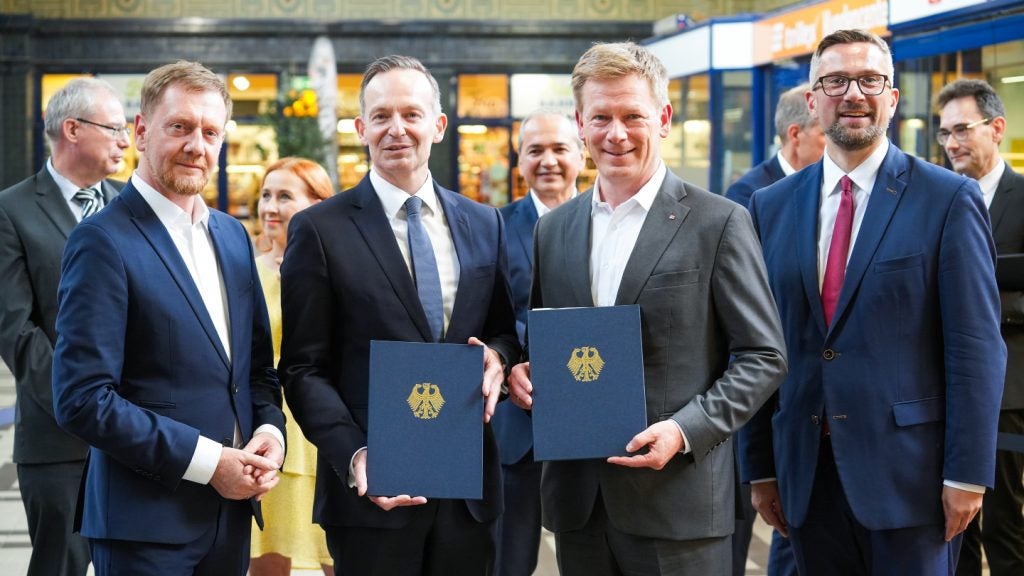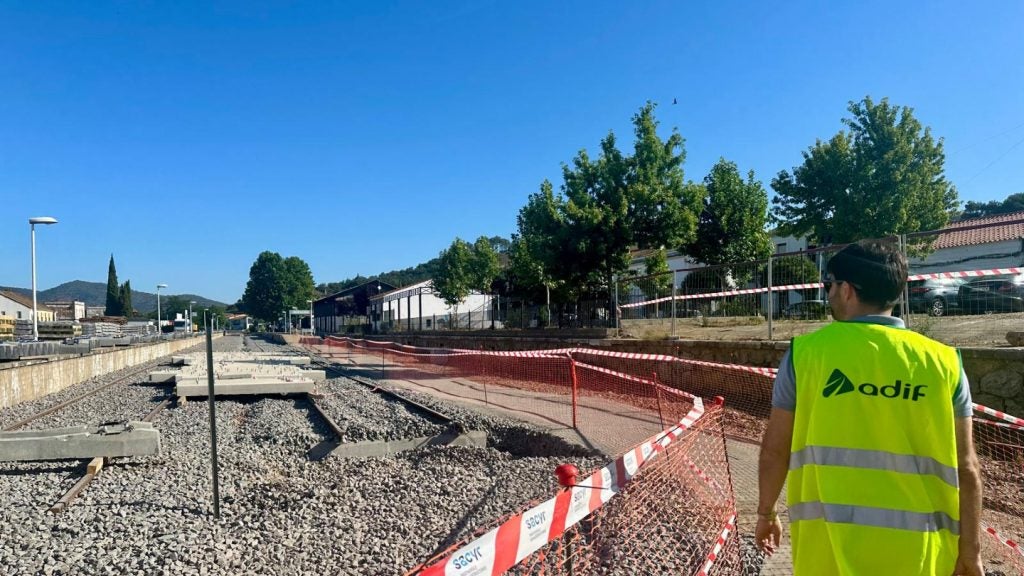The brand-new Class 197 diesel multiple unit (DMU) is manufactured by Construcciones y Auxiliar de Ferrocarriles (CAF), a rolling stock manufacturing company based in Spain, based on its Civity UK platform. It’s being made for Transport for Wales (TfW), a railway operator owned by the Welsh government.
The first train Class 197 train went off the production line at CAF’s facility in Newport, South Wales, in May 2021, after three years of design, manufacture and assembly work followed by a thorough testing and crew training programme. The trains feature bodyshells that were built in Beasain, Spain.
With their modern, efficient engines and latest technology, the Class 197 trains lower emissions and fuel consumption compared to the existing fleet of diesel trains, contributing to the TfW’s goal of being carbon neutral by 2030.
They will enable TfW to run faster and more frequent services to key destinations, such as Holyhead and Fishguard in Wales and Liverpool in England, offering increased capacity, reduced emissions and enhanced onboard comfort.
Orders and deliveries of the Class 197 trains
The contract for the 77 Class 197 trains, consisting of 51 two-car and 26 three-car trains, was received in 2018 to revamp the rail service on the Wales and Borders network. The contract was part of an £800m ($992m) investment to bring new trains across the network.
The TfW’s new Class 197 trains entered passenger service on the Conwy Valley line at the end of 2022, followed by their official launch at Llandudno railway station in January 2023. The Class 197 trains will serve as replacements for the existing Class 158 units used on the Cambrian lines.
Class 197 design and features
The driving cars of the Class 197 trains are 24.03m long, while the intermediate car in the three-car sets is slightly shorter at 23.35m. Dellner couplings are located on both ends of each set, allowing them to couple exclusively with other trains of the same 197 class.
The Class 197 trains offer Eleather seats featuring leather and stain-resistant qualities, advanced air conditioning or heating systems and customer information screens, which offer passengers up-to-date service information.
The Class 197 trains also include a smart seat reservation system. Seat reservations retrieve from the reservation computer each time a train crew change occurs.
The trains offer electronic charging points at each seat, wider doors for easy accessibility and dedicated spaces for people using wheelchairs or with restricted mobility separate from the spaces for cycles and prams.
Configurations of the Class 197 trains
Made of lightweight aluminium, the new Class 197 DMUs are available in two and three carriage configurations. The two-car configuration includes 116 standard class seats in a two by two format, while the three-car configuration has 188 standard class seats.
The final batch of three-car trains, specifically 197 113-126, will include a dedicated first-class section to be utilised on the Manchester-South Wales service. The first-class section will be shared with locomotive-hauled sets, which will reduce the seating capacity to 174 seats.
Additionally, all sets will be equipped with storage space for a refreshment trolley and a designated area for bicycles that does not require cyclists to hang their bikes on a hook, unlike some newly specified stock by the English Government. Each set will have provisions for accommodating two wheelchairs and will feature a disabled-friendly toilet, while the three-car trains will have an additional smaller toilet.
Class 197 DMU engine details
Each car of the new trains is equipped with a Rolls-Royce/MTU series 1800 power pack, which includes a Euro Stage V compliant 6H R85L turbocharged diesel engine. The engine is available in two power ratings, 390kW (523HP) or 375kW (503HP).
The engine is connected to a ZF Ecolife Hydro-mechanical transmission, which drives one of the two bogies. The braking system consists of disc brakes on the inside-framed bogie, which are controlled by Knorr Bremse’s ‘mechatronic’ intelligent braking system. Additionally, a hydrodynamic retarder is incorporated into the transmission to further assist in braking. The train can travel at a maximum speed of 160km/h.
Contractors involved
UK-based SMBC Leasing, a foreign exchange company and Equitix, a banking and finance company also based in the UK, invested in the construction of the Class 197 trains rolling stock fleet.
Apex Rail, an advisory team specialised in the rail sector based in Switzerland, together with IPEX Consulting, a UK-based rail consultant, serves as commercial contracts manager, supporting the project in contractual and commercial matters.
CAF Signalling, a subsidiary of CAF group, is responsible for delivering and certifying the ERTMS Level 2 system for 21 Class 197 trains, which will serve the Cambrian line.

